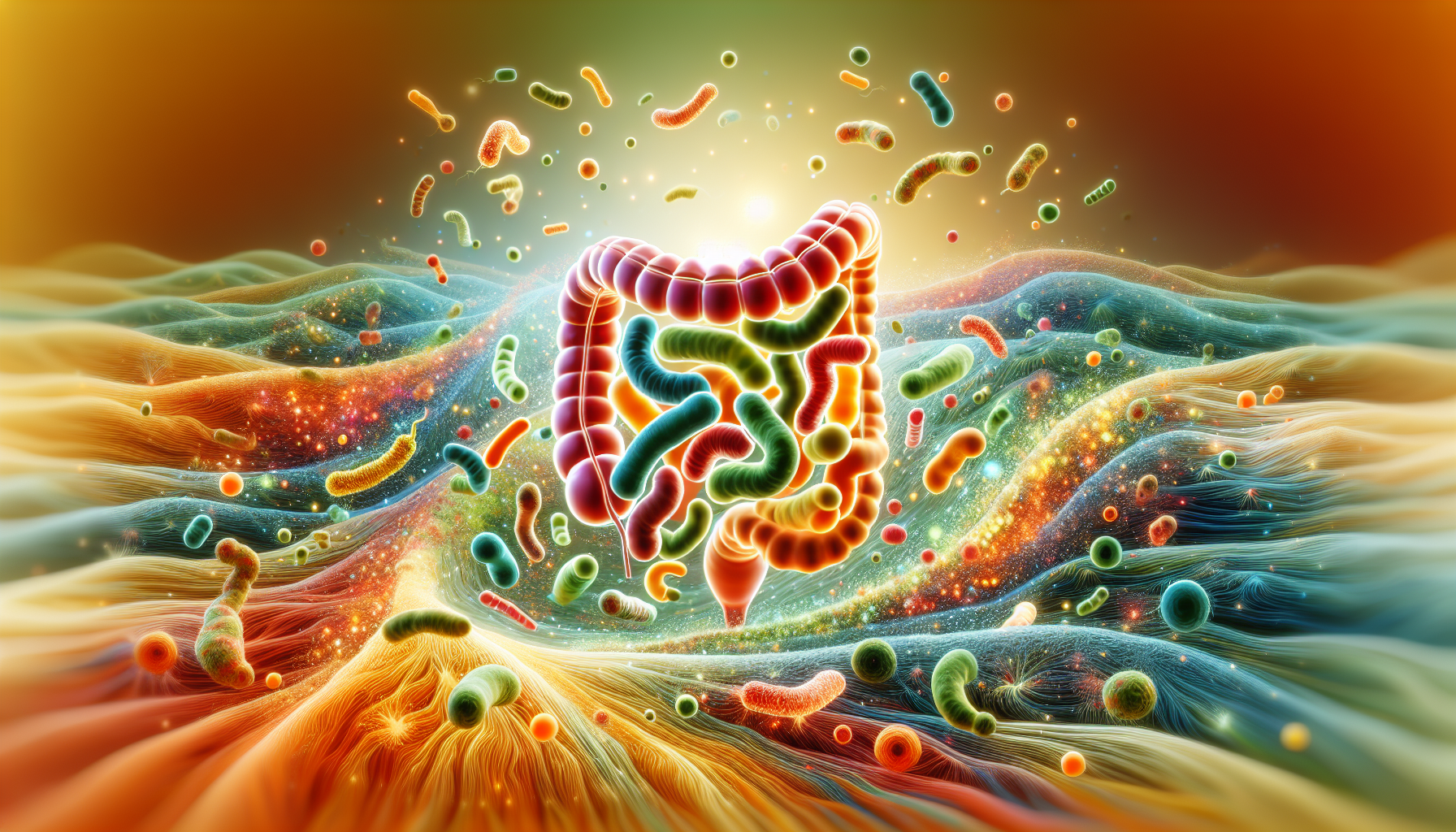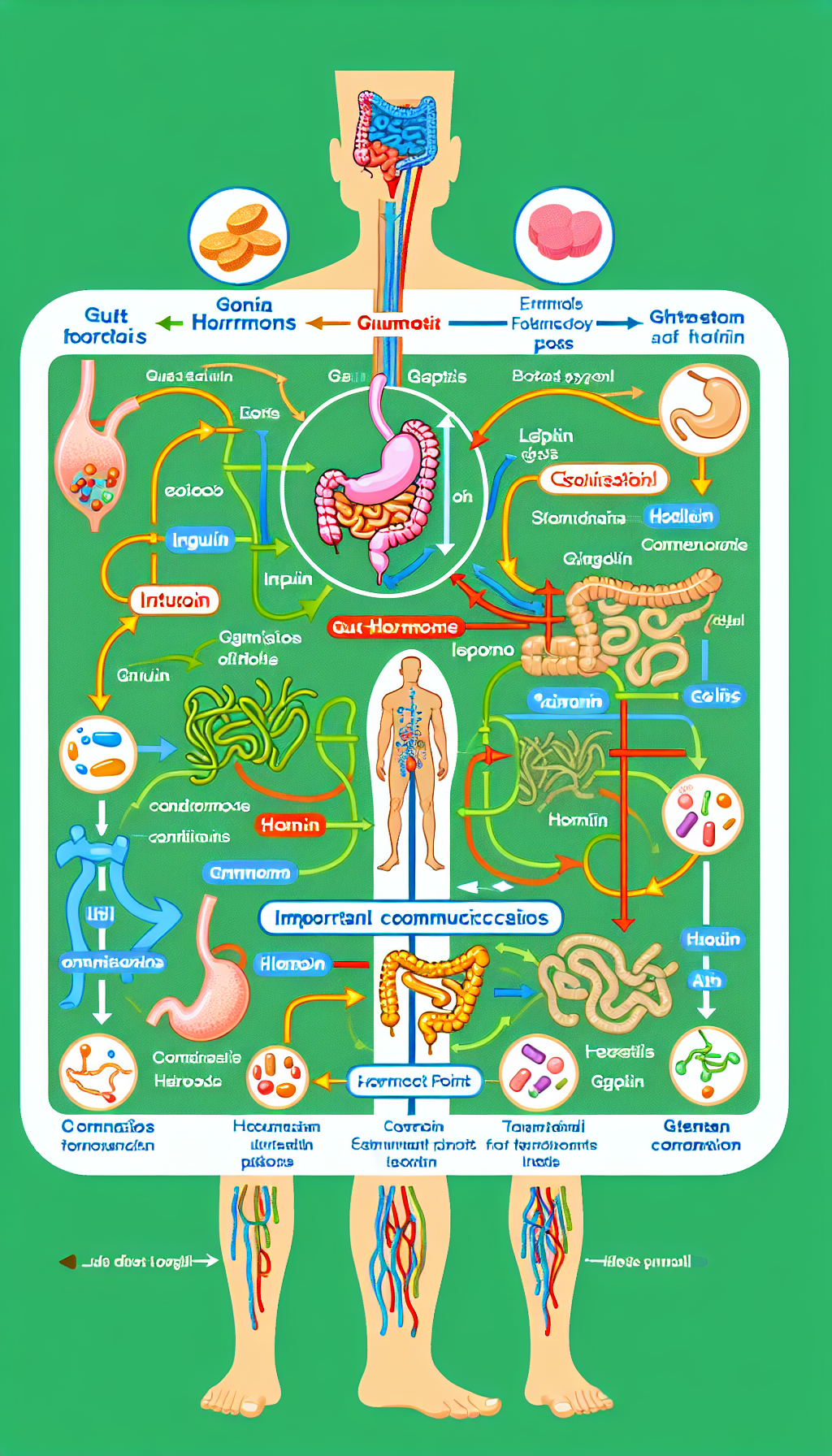The human body is a complex network where various systems intricately interact with one another to maintain homeostasis, and the relationship between gut health and hormonal balance is a prime example of this sophisticated interplay. A disruption in one can have profound effects on the other, often leading to a cascade of health issues that can affect overall well-being. This article delves into the significance of gut health in maintaining hormonal equilibrium, the consequences of imbalances, and strategies to support this delicate connection.
The Gut-Hormone Axis
The gut is often referred to as the body’s second brain due to its significant impact on various bodily functions, including hormone regulation. The gut microbiota, comprising trillions of bacteria, plays a fundamental role in metabolizing hormones and modulating their levels within the body. The bacteria in the gut can produce and secrete hormones, respond to hormones produced by the host, and importantly, influence the host’s hormone balance.
A healthy gut contributes to the regulation of several hormones, including serotonin, cortisol, and sex hormones like estrogen. For instance, approximately 95% of the body’s serotonin, a hormone that affects mood and social behavior, is produced in the gastrointestinal tract. The gut microbiota’s ability to communicate with the endocrine system through the gut-hormone axis is pivotal for maintaining hormonal balance.
The Role of Estrogen
Estrogen, a key sex hormone, not only plays a critical role in reproductive health but also affects other systems including the cardiovascular, skeletal, and central nervous systems. The gut microbiota contributes to the regulation of estrogen levels through an enzyme known as beta-glucuronidase. This enzyme helps in deconjugating estrogen into its active form, which can then be reabsorbed into the bloodstream.
An imbalance in the gut microbiota, known as dysbiosis, can lead to either an excess or deficiency of beta-glucuronidase, which in turn can result in abnormal estrogen levels. This imbalance has been linked to various conditions such as estrogen dominance, premenstrual syndrome, and even estrogen-related cancers.
The Stress Hormone: Cortisol
Cortisol, commonly known as the stress hormone, is another hormone influenced by the state of the gut. The hypothalamus-pituitary-adrenal (HPA) axis is the body’s central stress response system, and it regulates cortisol levels. Research has shown that gut bacteria can impact the HPA axis and thus influence cortisol production. Chronic stress can lead to gut dysbiosis, which can alter cortisol regulation, potentially leading to conditions like adrenal fatigue.
The Consequences of Imbalance
When the gut microbiota is imbalanced, it can lead to a condition known as "leaky gut syndrome," where the intestinal barrier becomes permeable, allowing toxins and partially digested food to enter the bloodstream. This condition can trigger inflammatory responses and affect the function of the endocrine system, leading to hormonal imbalances.
Symptoms of hormonal imbalances include weight gain, fatigue, mood swings, and irregular menstrual cycles in women. Long-term consequences can be more severe and include the development of autoimmune diseases, obesity, diabetes, and even mental health disorders.
Strategies for Supporting Gut Health and Hormonal Balance
Maintaining a healthy gut microbiota is essential for hormonal balance, and several strategies can be adopted to support this relationship:
-
Diet: A diet rich in fiber, fermented foods, and a variety of plants can nourish the gut microbiota and support its diversity. Foods high in probiotics, such as yogurt, kefir, and sauerkraut, can help replenish beneficial bacteria.
-
Prebiotics: These are indigestible fibers that feed beneficial gut bacteria. Sources include garlic, onions, bananas, and asparagus. For more on this, explore the article on The Importance of Prebiotic Foods in Gut Health.
-
Stress Management: Since stress can negatively impact gut health and hormonal balance, practicing stress-reduction techniques such as meditation, yoga, and deep breathing exercises can be beneficial.
-
Sleep: Adequate sleep is crucial for the maintenance of gut health and hormonal balance. It’s recommended to establish a regular sleep schedule and ensure a sleep-friendly environment.
-
Exercise: Regular physical activity can enhance gut microbiota diversity and help in regulating hormone levels. For insights into the link between exercise and gut health, refer to The Link Between Exercise and Digestive Health.
-
Avoiding Disruptors: Certain substances like antibiotics, artificial sweeteners, and high levels of alcohol can disrupt the gut microbiome. It’s crucial to use these substances judiciously and focus on a balanced diet.
-
Hydration: Water plays a key role in maintaining the health of the gut lining and ensuring proper nutrient absorption.
External Resources for Further Reading
For those interested in exploring the scientific underpinnings of the gut-hormone connection, here are some valuable resources:
- Effects of Gut Microbes on Nutrient Absorption and Energy Regulation
- An Overview of the Microbiota-Gut-Brain Axis
- Gut Microbiota’s Effect on Mental Health: The Gut-Brain Axis
Conclusion
The complex relationship between gut health and hormonal balance is an emerging field of study. It’s becoming increasingly clear that the gut microbiota is a key player in the endocrine system, influencing the production, regulation, and balance of hormones throughout the body. By adopting lifestyle choices that support gut health, individuals can make a positive impact on their hormonal health.
For further reading on related topics, consider the following articles from our collection:
- The Connection Between Gut Microbiome and Food Cravings
- How to Support Gut Health During Antibiotic Use
- The Impact of Diet on Gut Microbiome Diversity
By nurturing our gut microbiota, we can foster a harmonious environment that not only benefits our digestive health but also strengthens the hormonal systems that govern so many aspects of our health and well-being.



